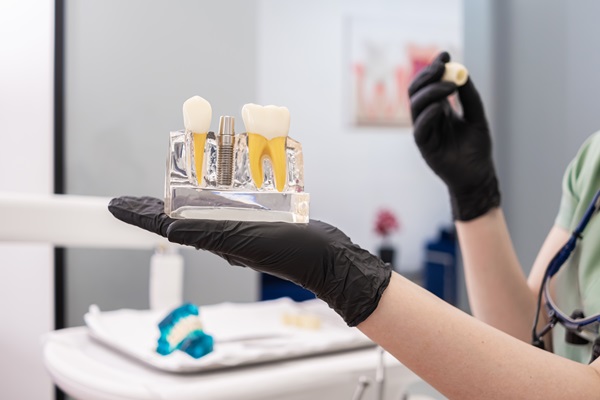Am I a Candidate for Socket Preservation Grafting?

Your dentist or oral surgeon may recommend socket preservation grafting after tooth extraction as a way to prevent teeth shifting, bone loss, and other concerns that may affect your oral health function and appearance. This review provides insights into who makes an ideal candidate for socket preservation grafting and why you should consider it after tooth extraction.
When to consider socket preservation grafting
The best way to determine whether you are a good candidate for socket preservation is to discuss the treatment option with a dentist or an oral surgeon. However, understanding more about the purpose of socket preservation grafting, what it is used to treat, and potential risks that are involved can help you decide if it is worth pursuing.
The purpose of socket preservation grafting
Since teeth are secured by the jawbone and gums, there is unfilled space in the jawbone after tooth extraction. The purpose of socket preservation grafting is to preserve the socket that a natural tooth root once occupied. This is particularly important if the patient intends to replace the missing tooth with a dental implant, dental bridge, or traditional denture (complete or partial).
Otherwise, the patient may be required to go through a more extensive bone grafting procedure before dental implant placement, or the jaw bone and gums may begin to recede, making traditional dentures and dental bridges less comfortable and less attractive.
The ideal candidate for the treatment procedure
Dentists and oral surgeons often recommend socket preservation grafting after tooth extraction to ensure bone tissue loss in the jaw does not occur, to prevent gum recession, and to ensure teeth do not shift before an implant, bridge, or denture is placed to fill the extra space. Every patient who goes through a tooth extraction procedure or loses their teeth naturally or by way of a dental accident should consider socket preservation grafting to ensure concerns do not develop.
The potential risks of socket preservation grafting
As is the case with any dental or medical procedure, there are some risks of socket preservation grafting. The procedure may increase the risk of an oral infection during the recovery process if the mouth is not kept clean (see below). Also, blood clots and nerve damage could occur, along with potential anesthesia concerns. However, the risks of any complications are very small and almost all have a successful treatment and recovery experience.
Recovering after socket preservation grafting
To ensure a healthy and more comfortable recovery, be sure to keep the mouth clean by brushing and using mouthwash as directed, along with limiting foods and drinks that are high in sugar. If any complications develop, let your dental professional know as soon as possible.
We offer socket preservation grafting
Here at our practice, we offer socket preservation grafting for patients who have recently received or are in need of tooth extraction. Feel free to contact us to arrange a time to meet with our friendly team, during which we can determine if you are an ideal candidate for this procedure.
Request an appointment here: https://www.drjstearns.com or call Platte Valley Oral Surgery at (303) 997-0220 for an appointment in our Denver office.
Check out what others are saying about our services on Yelp: Socket Preservation Grafting in Denver, CO.
Recent Posts
Clinical studies show that the dental implant remains the gold standard of dental restorations. Implants can help bring back your smile and dental function. The right dental professional can perform the procedure without any issues. Here are the details on how an oral surgeon approaches a dental implant surgery.Choosing a dentist who has training and…
A missing tooth must get a tooth replacement as soon as possible. An untreated dental gap can contribute to many dental issues. That is why a dental replacement is important. Here are the details on how a tooth replacement can improve your smile.An oral surgeon understands how tooth loss can affect a patient. A tooth…
Learning what an oral surgeon does is a great idea. There are many different types of dental professionals in business, making it necessary to understand the differences between each type of professional. When it comes to oral surgeons, they tend to focus on correcting dental problems using one or more surgical processes.Consultation appointments with oral…
An oral pathology must receive immediate treatment. This can prevent more complications later on. Your oral surgeon can help correct any dental problem. Here are the details about each common oral pathology and its corresponding treatment.This oral pathology results from a bacterial infection because of plaque buildup. Symptoms of this condition include gum bleeding and…


